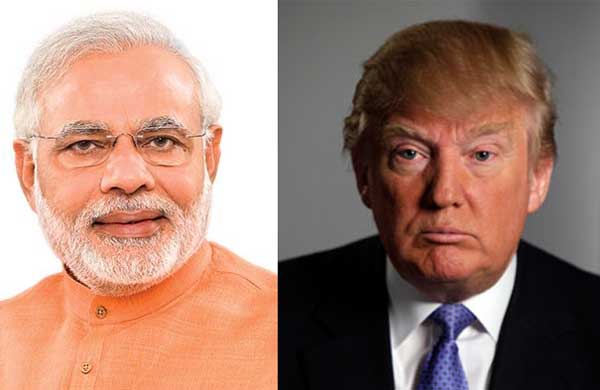The global and regional strategic context for the first Modi-Trump meeting on Monday (June 26) is reflected in the veiled cautionary statement from Beijing to “non-regional countries” in relation to the South China Sea dispute and the pre-Eid jihadi violence that has racked Iraq, Afghanistan and Pakistan in recent days.
How the two countries will coordinate their positions on regional and global security and strategic matters will be evident soon but the signals from the White House apropos the bilateral are tentatively positive though limited to the transactional. The US has indicated that it will enable the sale of Guardian surveillance drones (remotely piloted aircraft) to India and there is talk about the F 16 fighter aircraft coming into bi-lateral focus.
However the most significant issue for PM Modi is to get a sense from President Trump about the continuity index in the broad orientation of India-US relations that had undergone a major transformation in 2005. For much of the Cold War, India and the USA were ‘estranged’ democracies and the nuclear issue had become the visible and bitterly contested symbol of a host of security related differences. Consequently the US had imposed stringent technology denial regimes to impede India’s progress in certain critical strategic sectors and the dominant US perception was that of clubbing India with Cuba – two nations far apart but united in their anti-American DNA!
The May 1998 Indian nuclear tests under then PM Atal Bihari Vajpayee triggered the beginning of the change in the India-US bilateral relationship that was led by President Bill Clinton and brought to its definitive moment in 2008 by the resolve of President George Bush and PM Manmohan Singh. India was accorded exceptional status in the global nuclear domain and this was predicated on the strategic assumption in the White House that core US interests were better served by having a strong and cooperative relationship with India. The transactional factor was more intangible and a determined George Bush overruled critics in his team and enabled India to join the global strategic comity as a partner in the collective endeavor of the 21st century. Despite some hesitancy and distraction, the Obama team retained this orientation in the bi-lateral and the personal chemistry between Modi and ‘my friend Barack’ was visible. For the first time a US President was the Chief Guest at the Indian Republic Day parade in January 2015.
The end June challenge for Modi is to ascertain the Trump commitment to the bi-lateral. For instance, it has taken six months for a US ambassador to Delhi to be identified. Is this an indicator? A determined reversal of the Obama policy has come into play apropos Iran and now Cuba. But unpredictability has become a Trump trait and from initially describing China as having “raped” the US economically, post his first meeting with the Chinese President, the Trump assessment was that Xi is a “great leader.” Were any quiet ‘deals’ offered by Beijing to the Trump family? Is this the only way to placate a perennially petulant Trump? This is moot but the speculation continues.
For India the more recent Trump policy posturing has been less than favourable. While announcing the US withdrawal from the Paris climate agreement, POTUS accused India of obtaining unfair and undue advantage and this led to a firm rebuff from Delhi. The Trump promise to reduce immigrant workers and the number of H1B visas is of direct relevance to the Indian IT industry. Furthermore, Modi’s ‘make in India’ objective has to be harmonized with the Trump commitment to ‘buy American’ and ‘hire American.’
While trade and economic ties will be driven by prevailing global market forces, the security and strategic domain is state led. And it is instructive to note that the White House statement on the Modi visit has identified three “common priorities” – two of them – fighting terrorism and expanding security cooperation in the Indo-Pacific region – have linkages to the old chestnuts in the India-US bilateral basket – Pakistan and China. The new US security team is all set to announce the Trump trapeze to deal with China and Af-Pak having already stirred the pot in West Asia in an imprudent manner.
Modi and Trump pride themselves on being natural deal-makers. It will be instructive to monitor how they ‘deal’ with each other on Monday and how this will impact the bilateral relationship.
Courtesy: First published on www.southasiamonitor.org





